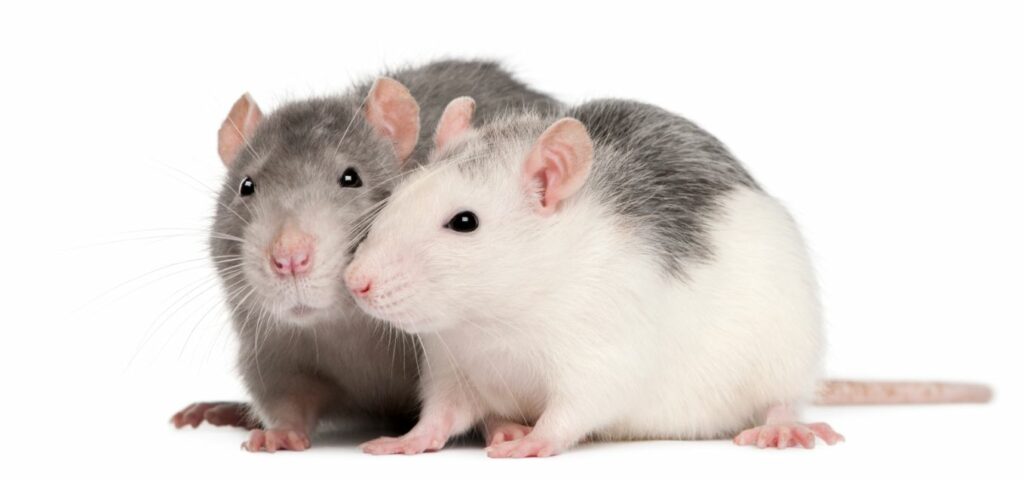As a veterinarian, I often get asked about whether it is okay to keep rats alone. The answer is no – rats are social animals and need companionship to thrive.
In this blog post, we will explore the importance of social interaction for rats, why rats need companionship, how to introduce a new rat to your current rat, and how to choose the right companion for your rat.

The importance of social interaction for rats
Rats are social animals and live in large groups in the wild. They are highly social creatures and thrive in the company of other rats.
They are very playful, curious, and intelligent animals that need mental stimulation to stay healthy and happy. In the absence of companionship, rats can become lonely and depressed, which can lead to a range of physical and mental health issues.
Why rats are social animals
Rats are highly social animals that live in large groups in the wild. They rely on their social interactions to survive and thrive.
They communicate with each other through a range of vocalizations, body language, and scent marking. They also groom each other to establish social bonds and maintain good hygiene. Rats are highly intelligent creatures that need mental stimulation and social interaction to stay healthy and happy.
The perceived benefits of keeping a rat alone
Some people believe that keeping a rat alone is better for the rats because they will not fight or become ill. However, this is a misconception.
Rats need companionship to thrive, and in the absence of social interaction, they can become lonely and depressed, which can lead to a range of physical and mental health issues.
Why rats need companionship
Rats need companionship to thrive. They are highly social animals that rely on social interaction to stay healthy and happy.
In the absence of companionship, rats can become lonely and depressed, which can lead to a range of physical and mental health issues.
The negative effects of isolation on rats
Isolation can have a range of negative effects on rats. They can become lonely and depressed, which can lead to a range of physical and mental health issues. They can also become aggressive, territorial, and anxious, which can lead to fighting and other behavioral issues.
The benefits of keeping rats in pairs or groups
Keeping rats in pairs or groups has a range of benefits. They will have social interaction, mental stimulation, and the ability to groom each other. They will also be less likely to become depressed or aggressive, which can lead to a range of physical and mental health issues. In addition, rats that are kept in pairs or groups are generally happier and healthier than those that are kept alone.
How to introduce a new rat to your current rat
Introducing a new rat to your current rat can be a tricky process, but it is important to ensure that both rats get along and are happy. Here are some tips for introducing a new rat to your current rat.
The best age to introduce a new rat
The best age to introduce a new rat to your current rat is around six weeks old. This is when the rats are still young enough to establish social bonds with each other, but old enough to be independent.
The importance of proper introduction and integration techniques
Proper introduction and integration techniques are key to ensuring that both rats get along and are happy. You should introduce the rats slowly and carefully, allowing them to get used to each other’s scent and presence before allowing them to interact. You should also monitor their interactions closely to ensure that they get along and are happy.
Choosing the right companion for your rat
Choosing the right companion for your rat is important to ensure that both rats get along and are happy. Here are some factors to consider when choosing a companion for your rat.
Factors to consider when choosing a companion
When choosing a companion for your rat, you should consider their age, gender, temperament, and personality. You should also make sure that they are healthy and free from any infections or diseases.
Types of companions (same sex, opposite sex, neutered, etc.)
There are several types of companions that you can choose for your rat, including same-sex companions, opposite-sex companions, and neutered companions. Same-sex companions are generally easier to introduce and less likely to fight, while opposite-sex companions may require more careful introduction and monitoring. Neutered companions are also a good option, as they are less likely to fight and can be introduced more easily.
Conclusion: Rats should never be kept alone
In conclusion, rats should never be kept alone. They are highly social animals that need companionship to thrive. In the absence of companionship, rats can become lonely and depressed, which can lead to a range of physical and mental health issues.
It is important to introduce a new rat to your current rat slowly and carefully, and to choose the right companion for your rat. By providing the best care possible for your pet rat, you can ensure that they are happy and healthy for many years to come.
- How Long Do American Eskimo Dogs Live? Important Factors and Care Tips - September 29, 2023
- Do American Bulldogs Need Grooming? Essential Tips and Care Guidelines - September 29, 2023
- Do Bengal Cats Enjoy Playing? Essential Tips for Keeping Them Active - September 29, 2023